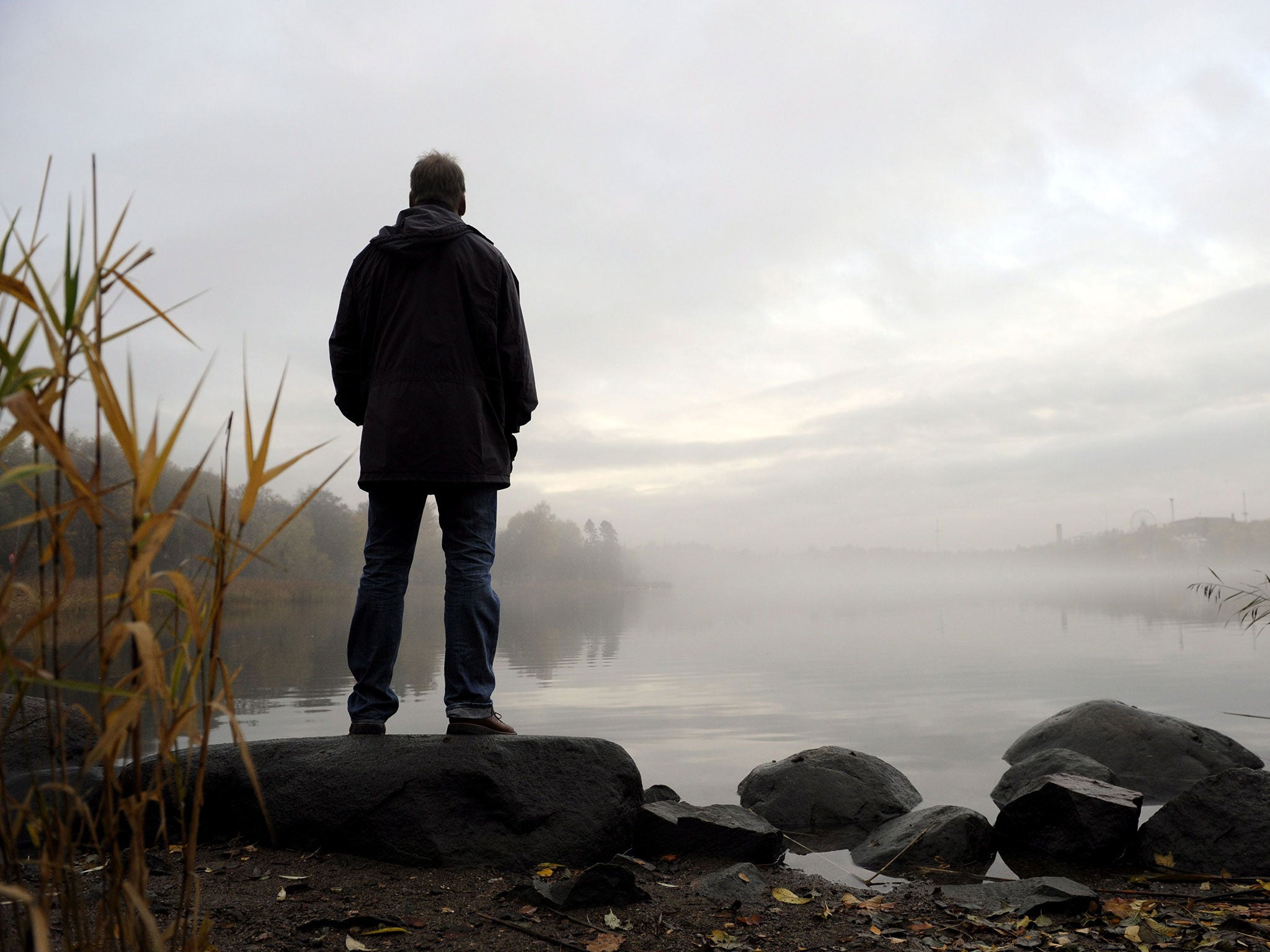Ageing alone: Isolation and loneliness await growing number of men
Almost a quarter of men living alone have contact with their children less than once a month, compared with 15 per cent of older women

Britain’s men are facing a future blighted by rising levels of loneliness and “social isolation”, new research suggests.
By 2030 the number of older men living alone is expected to rise by two-thirds, according to a study by Independent Age and the International Longevity Centre-UK (ILC-UK).
According to the research, more than 1.2 million men over 50 in England say they suffer from isolation. Men are more likely than women to experience loneliness as they get older because they have significantly less contact with children, family and friends than women, academics discovered.
Almost a quarter of men living alone have contact with their children less than once a month, compared with 15 per cent of older women. Men’s social networks often decline after the death of a partner because women tend to do more to organise and encourage their social life, researchers found.
Janet Morrison, chief executive of Independent Age, said: “It’s alarming to think there are growing numbers of lonely older men who may be facing a future alone and without proper support. This new evidence suggests men and women experience social isolation and loneliness in different ways.
“In general, men rely more heavily on their partner to remain socially connected. When their partner dies, often a man’s social life shrinks.”
The number of older men living alone is rising. By 2030 projected numbers in England and Wales are 1.5 million, an increase of 65 per cent.
The rise is partly because men are living longer and healthier lives, meaning more now outlive their partners. Between 2001 and 2011 the number of males over 85 widowed grew by a third, according to the Office for National Statistics. But there is also a generation entering old age who are more likely to have never married or suffered marital breakdown.
Baroness Sally Greengross, chief executive of ILC-UK, said: “Health services and GPs can play an important role in outreach by identifying patients most at risk and providing support in partnership with the voluntary sector. Statutory bodies should also work with the voluntary sector to develop low-cost innovations to encourage older men to support each other through the creation of clubs and other social programmes.
“Professional bodies should also consider creating post-retirement clubs for their workforce, particularly in male-dominated industries. These could have the potential to keep older men socially connected in post-work life, as well as offering support at certain later-life events, such as widowerhood, that can impact older men’s exposure to isolation and loneliness.”
Experts believe the latest research suggests more needs to be done to tailor help towards men. Laura Ferguson, director of the Campaign to End Loneliness, said: “Charities across the nation struggle to find, and engage with, lonely older men. With social isolation and loneliness posing a serious risk to their health, local activities must be more tailored to suit men’s interests and needs.”
Body image: price of perfection
Body anxiety is so widespread across the UK that 16 million Britons are depressed because of the way they look, figures suggest. The research comes from campaign group Be Real: Body Confidence for Everyone, which launches this week.
The pressure of trying to achieve an unrealistic “ideal body” traps millions of people in the UK in an unhealthy cycle of depression, short-term dieting, cosmetic intervention and eating disorders according to the group.
Polling of over 2,000 people carried out by Be Real suggests that 18 million people do not exercise because of body anxiety. One in four people say body image has held them back from a fulfilling relationship, and one in five have avoided going for a job for the same reason.

Join our commenting forum
Join thought-provoking conversations, follow other Independent readers and see their replies
Comments